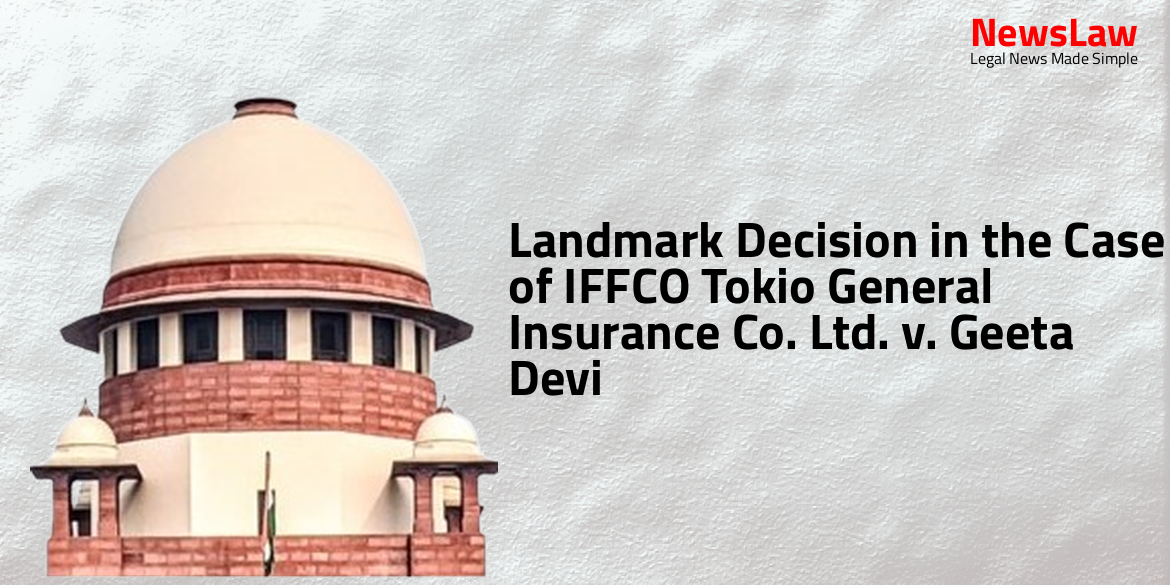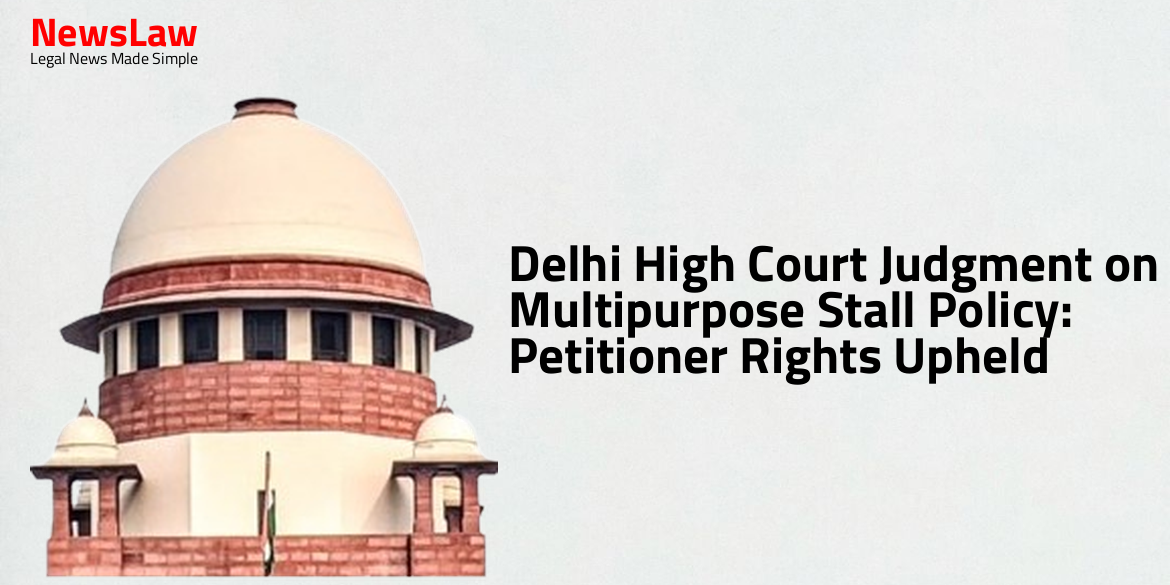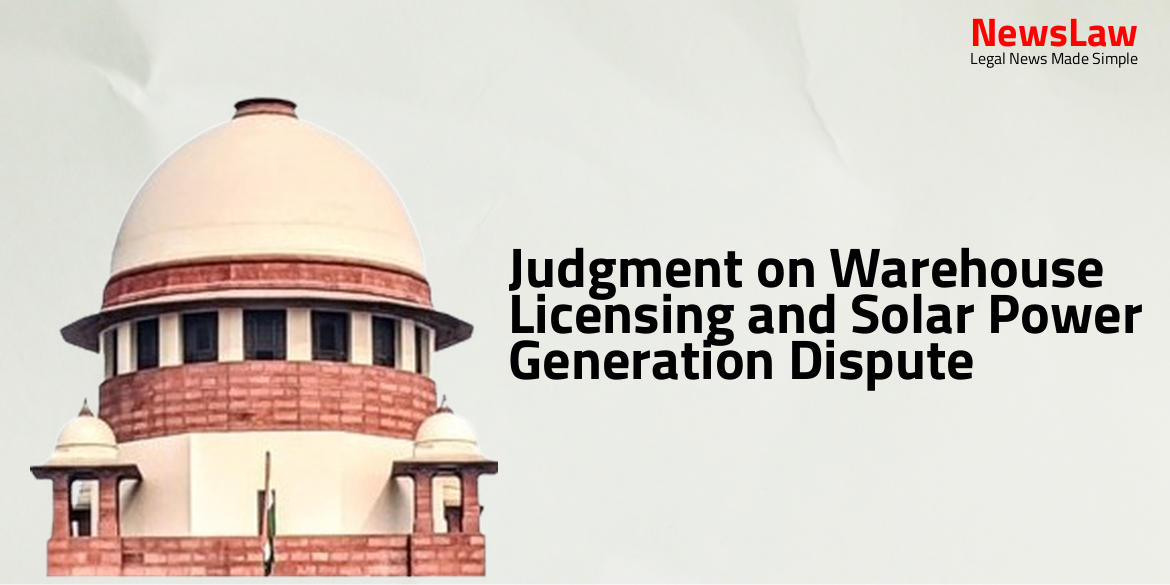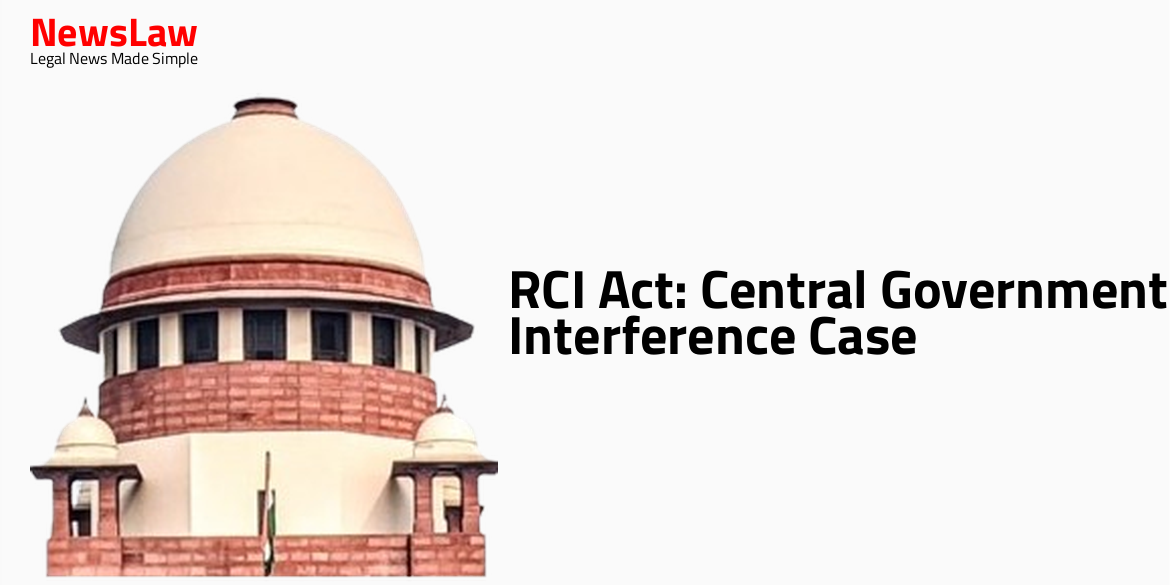In a significant legal development, the Delhi High Court has made a landmark decision in the case of IFFCO Tokio General Insurance Co. Ltd. v. Geeta Devi. The court has set aside the impugned judgment-cum-award dated 17.02.2018, ruling that the registered owner cannot be held liable for the fake driving license presented by the driver. This decision sheds light on the complexities of insurance company liability and the owner’s duty to verify driver licenses. Stay tuned for a detailed breakdown of the case and its implications in the legal landscape.
Facts
- The judgment has been challenged on the grounds that the onus is on the insurance company to prove a violation of the insurance policy.
- The insurance company failed to prove that the license was fake or not issued by the relevant authority.
Arguments
- The appellant contends that the owner cannot be held liable if the driver presented a license that seemed genuine
- Reference is made to the case of IFFCO Tokio General Insurance Co. Ltd. v. Geeta Devi to support this argument
- The registered owner did not dispute that the driving license was fake.
- This fact was not contested before the Tribunal.
Analysis
- The decision of the Tribunal to grant recovery rights against the appellant as the registered owner of the vehicle is not sustainable in law.
- The appellant’s plea that he produced the driving license but could not produce the driver as he had no control over him holds merit.
- There is no evidence that the appellant was aware of the forged driving license or allowed the driver to operate the vehicle knowingly.
- The insurance company failed to prove that the appellant knew about the fake license and still permitted the driver to use the vehicle.
- The registered owner is not expected to verify the authenticity of the driver’s license produced.
- The insurance company could have summoned and examined the registered owner to strengthen its case but did not do so.
- The driving license of the driver was verified from the RTO but was found to be bogus.
- The Tribunal’s observations mentioned the insurance company’s liability under the third-party clause, which was disputed due to the license violation.
- The driver had been driving the vehicle satisfactorily for a long period, leading the owner to believe the license was genuine.
- When an owner hires a driver, the owner must check if the driver has a valid driving license.
- If the driver is found to be capable of driving the vehicle, the owner may hire the driver.
- Insurance company remains liable to innocent third party even if the driving licence is found to be fake.
- Insurance company may recover from the insured in such cases.
- The owner’s responsibility to ensure driver has a valid licence is questioned by insurance companies.
- Owner’s satisfaction with driver’s competence and licence validity can absolve insurance company of liability.
- If licence is fake and owner was aware, insurance company remains liable.
- Insurance company’s liability is upheld unless owner knowingly allowed fake licence holder to drive.
Decision
- The law laid down in Skandia, Sohan Lal Passi, and Kamla cases is applicable.
- The impugned judgment-cum-award dated 17.02.2018 is set aside.
- The appeal is allowed.
- The recovery rights granted to the insurance company against the registered owner are set aside.
- The insurance company can proceed for the recovery of compensation from the driver of the offending vehicle.
Case Title: SANDEEP YADAV Vs. THE NEW INDIA ASSURANCE CO LTD (2024:DHC:4101)
Case Number: MAC.APP.-39/2022



